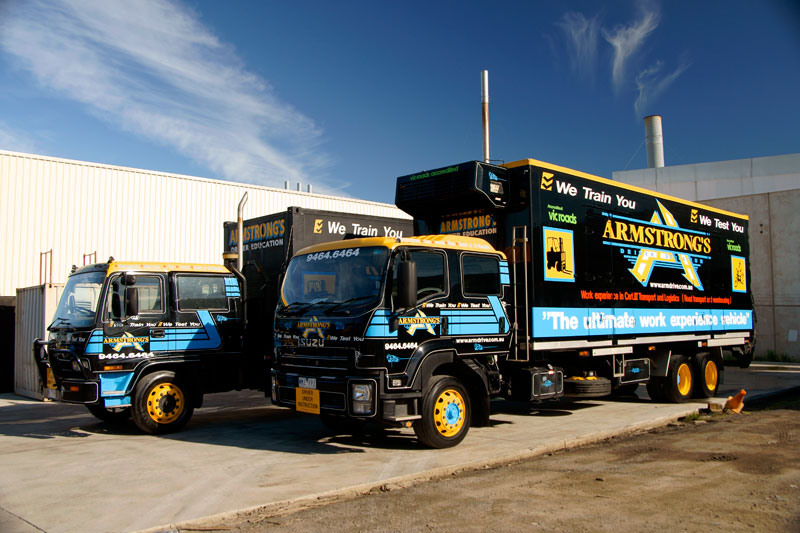There has been some negative rumblings about the merits of heavy vehicle group training for some time now. Critics (basically other providers who don’t offer group training) say that group training courses are nothing more than a way of training providers making more money from their courses by simply putting more people in them. Ouch!
Well, just because Armstrongs pioneered the introduction of heavy vehicle group courses doesn’t mean our clients are restricted to just group courses. Armstrongs aim in providing group courses and 1:1 courses is not about what’s good for us – but about what’s good for our clients! That is, our clients have options when it comes to how they want to learn. We don’t try to convince our clients one is better than the other, we simply point out that each has strengths and weaknesses. So when we are talking to our clients about what training course will best meet their needs we simply leave it up to them to tell us how they want to learn and we can cater to them either way.
But for the ‘group-training-naysayers’ out there, you have to remember that group training only works when you have vehicles (our vehicles are all twin-cabs), teaching methods, and systems that are specifically designed to deliver training to more than one person at a time and that can cater for different levels of skills uptake between students. You simply can’t run a 1:1 heavy vehicle training plan for 2 or 3 clients and then complain that group training doesn’t work.
But as an organisation who has put a lot of time and effort over the last 15 years into developing true group training courses, he’s what you need to know when considering whether to undertake your heavy vehicle training in either a group course or 1:1 basis.
What Group Training Isn’t
– Sitting in between another client and an instructor with one leg either side of the gear shift is not group training.
– Simply adding an another client to the course and using the same training plan as you would in a 1:1 situation is not group training.
– Waiting for everyone in the group to reach the same level before moving onto something new
– Forcing one member of the group move onto the next skill because other students are ready to
So What is Group Training?
1 – It’s a more social
If you are new to heavy vehicles – let’s face it, almost everyone is on a LR, MR or HR course – then it’s great knowing that what you are feeling and experiencing is not unique to you. Group training works well because it allows you to share your experience with others who might be having the same troubles and worries as you. You also meet some really nice and interesting people.
2 – It’s more relaxed
Group training is necessarily longer which means the learning process is spread over a longer period time. This allows students more time to learn and consolidate their skills at a learning pace which they are comfortable at. You set the pace at which you want to learn.
3 – Just Because You’re Not Behind The Wheel Doesn’t Mean You’re Not Learning
This is a common misconception about group training. A good trainer who pays attention to the mental welfare of their clients knows that within 30-45 minutes or so of a student taking the wheel they are going to need a break from the level of mental concentration it takes to maintain road position whilst trying not to crunch every gear in an environment where ever other car on the road seems hell bent on trying to make you crash! Just before your brain fries from an over load of stimuli, you rotate into the rear of twin-cab where you start your ‘passive’ learning. This is not the point at where you get to switch off and watch the world go by until it is your turn again. Passive learning is all about watching and learning from others – specifically their mistakes. Why make a mistake that someone has already made? You learn from theirs, they learn from yours, and together as a group you all progress.
The other thing of course is that group training courses attract state government funding. That means if you meet funding eligibility criteria the cost of course will be subsidised meaning you save big time! Hmmm, that might be enough to get you to consider group training?
If you think a group training course fits your learning style then check out our heavy vehicle course page here, decide on what type of heavy vehicle license you want get, and then give Armstrongs the group training specialists a call. But if you think 1:1 training is more your thing, then give us a call too. Either way, the decision is entirely yours!


